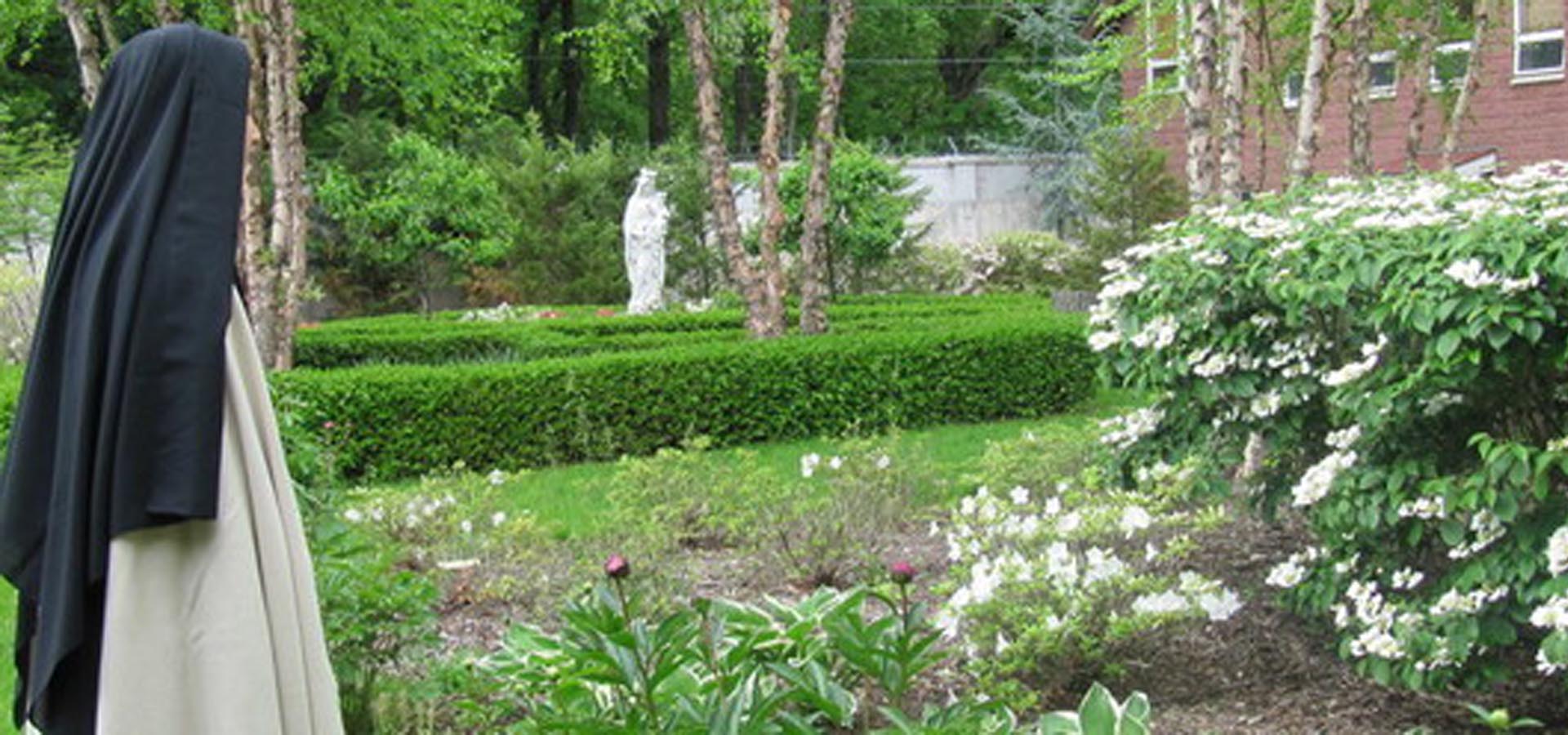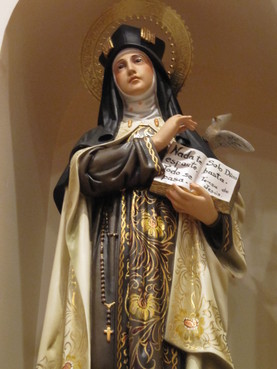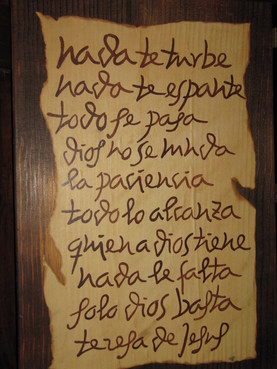
Basic Admission Requirements
This house is a Heaven, if one can exist on earth.
It is a very happy life for anyone who is pleased with pleasing God.
– St. Teresa of Avila
Even though the enclosure embraced by the Carmelite may seem radical in requiring such separation from her family, friends and material things, it brings down upon them and the world graces and blessings from her Divine Spouse which could never have been obtained for them otherwise. Her life is a constant witness to them and to the world of the reality of the Eternal life we were all created to enjoy.
Serious medical conditions would make it difficult for someone to live and work as a consecrated person. A vocation to the religious life supposes, then, not only a supernatural inclination or desire to embrace it, but an aptitude or fitness for its duties. God cannot act inconsistently. In other words, along with a desire, there has to be an inner and outer capacity, that is, the physical, psychological and moral capacity to live a certain way of life, and the outer circumstances permitting one to do so: suitable age, freedom from marriage bond and other big responsibilities, including freedom from debt.
The Pleasant Mount Carmel is open to:
- Single women never married
- A Catholic who is fully initiated into the Church and willing “to prefer nothing to the love of Christ”
- Between 18 and 30 years of age.
- Request and complete the entrance application
Free of financial debt and without dependents. - Certificate of Baptism and Confirmation.
- Letters of Recommendation.
- Successful completion of physical and psychological examinations.
- Other background information as requested.
- Desire to commit oneself to Our Lord and His Church for the salvation of souls.
- Confident belief in Christ’s promise to sanctify and unite Himself intimately with all those who give themselves generously to Him.
- Must possess a happy disposition, a good sense of humor, a spirit of docility and childlike openness with superiors and ability to live in Community.
The Second Vatican Council did not hesitate to affirm that communities which are totally dedicated to contemplation “…no matter how urgent may be the needs of the active apostolate, will always have a distinguished role to play” and that their withdrawal from the world and the practices of their contemplative life should be maintained with the greatest reverence. (see Perfectae Caritatis)
With what procrastinations do you wait, since from this very moment you can love God in your heart.
– St. John of the Cross


